TVB Bundle
Who Really Owns TVB?
Unraveling the intricacies of TVB SWOT Analysis is key to understanding its future. The ownership structure of Television Broadcasts Limited (TVB) is a fascinating tale of media dominance and strategic shifts. Recent moves by key figures, like the executive chairman's investment, signal potential changes ahead, making now the perfect time to explore the company's ownership.
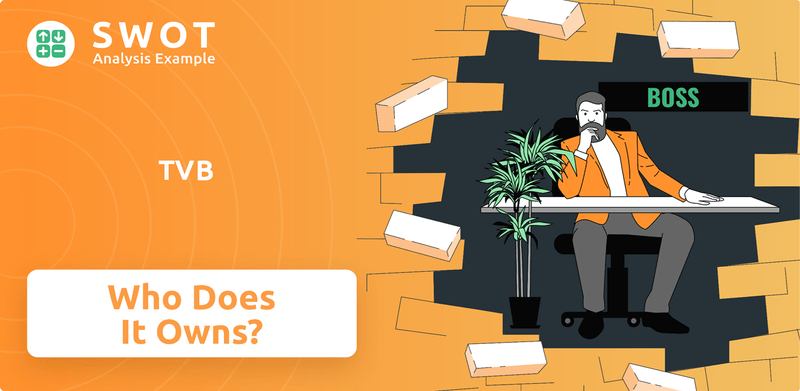
Understanding the current owner of TVB, and the broader TVB ownership landscape, is essential for anyone interested in the company's trajectory. From its inception as 'Wireless Television' to its current status, TVB Hong Kong's ownership has evolved significantly. This exploration will delve into who is the major shareholder of TVB and the influence of its key stakeholders, offering insights into TVB company history ownership and the strategic decisions that have shaped its path.
Who Founded TVB?
The story of Television Broadcasts Limited (TVB) begins on July 26, 1965, when the company was officially incorporated. It wasn't until November 19, 1967, that TVB started broadcasting, marking a significant moment in Hong Kong's media history. This launch established TVB as the first free-to-air television station in the region, setting the stage for its future dominance.
The founders of TVB included Sir Run Run Shaw, who later became the chairman from 1980 to 2012, Sir Douglas Clague, and Harold Lee Hsiao-wo, representing the Lee Hysan family. Sir Run Run Shaw, a prominent figure in the film industry and founder of Shaw Brothers, played a crucial role in securing the government franchise. This was essential for establishing TVB as a leading force in broadcasting.
While precise details about the initial shareholding structure among the founders are not readily available in public records, the involvement of individuals like Sir Run Run Shaw indicates substantial investment and industry expertise. The establishment of 'Wireless Television' as Hong Kong's first free-to-air station underscores a pioneering spirit in its early ownership, laying the foundation for TVB's impact on the local media landscape. Understanding the Target Market of TVB is crucial to understanding its success.
The early ownership of TVB was a mix of prominent figures. Sir Run Run Shaw, Sir Douglas Clague, and Harold Lee Hsiao-wo were the key founders. The early ownership structure was built on the vision to create a dominant broadcasting entity.
- Founders: Sir Run Run Shaw, Sir Douglas Clague, Harold Lee Hsiao-wo.
- Role of Sir Run Run Shaw: Secured the government franchise.
- Broadcasting Launch: November 19, 1967.
- Significance: Hong Kong's first free-to-air station.
TVB SWOT Analysis
- Complete SWOT Breakdown
- Fully Customizable
- Editable in Excel & Word
- Professional Formatting
- Investor-Ready Format
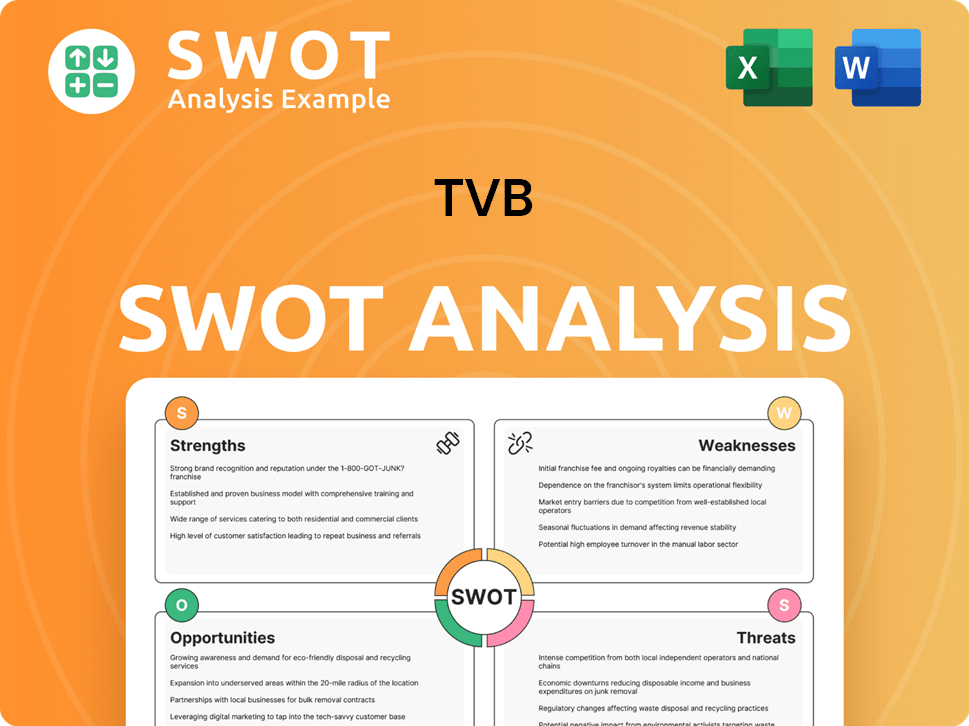
How Has TVB’s Ownership Changed Over Time?
The TVB ownership structure has seen significant changes since its inception. Initially, Shaw Brothers (Hong Kong) Limited held a 26% stake. This changed in 2011 when an investor group led by Dr. Charles Chan Kwok Keung, along with Madam Cher Wang and Providence Equity Partners LLC, acquired the stake. The ownership further evolved with Li Ruigang, through Young Lion Holdings, emerging as the key figure.
In 2017, Li Ruigang, founder of China Media Capital (CMC), was revealed as the ultimate owner of TVB. He controlled TVB through Young Lion Holdings, which directly held a 26% stake. Li Ruigang held a 79.01% stake in Young Lion, while Charles Chan Kwok-keung held 56.51% of Young Lion's voting shares but only 6% of its total shares. This shift brought increased influence from Mainland China, impacting the company's strategic direction and partnerships.
| Shareholder | Shares Held (as of May 2025) | Percentage of Ownership (as of May 2025) |
|---|---|---|
| Young Lion Holdings Limited | 116,817,527 | 25.02% |
| Silchester International Investors Limited | 41,801,900 | 8.95% |
| Other Shareholders | Remaining Shares | Remaining Percentage |
As of May 2025, Young Lion Holdings Limited remains a significant shareholder, holding a 25.02% stake. Silchester International Investors Limited holds 8.95%. These ownership dynamics have influenced TVB's strategic moves, including co-production agreements with platforms like Youku and Tencent, which boosted drama co-production revenue by 72% in 2020. In 2024, TVB launched five new original drama IPs concurrently in Hong Kong and mainland China, showcasing its focus on the Chinese market.
The current owner of TVB is Li Ruigang through Young Lion Holdings.
- Young Lion Holdings Limited is the major shareholder, holding a significant stake.
- Silchester International Investors Limited is another major institutional investor.
- The ownership structure has evolved, reflecting shifts in strategic direction.
- TVB's focus on co-productions and the Chinese market is a direct result of these ownership changes.
TVB PESTLE Analysis
- Covers All 6 PESTLE Categories
- No Research Needed – Save Hours of Work
- Built by Experts, Trusted by Consultants
- Instant Download, Ready to Use
- 100% Editable, Fully Customizable
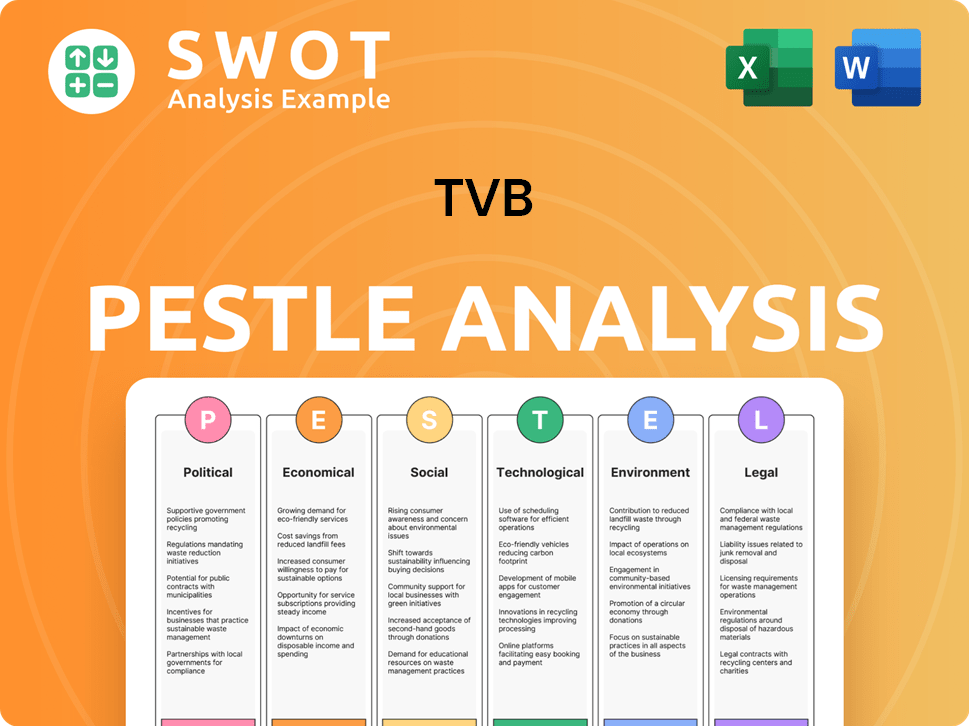
Who Sits on TVB’s Board?
As of May 2025, the Board of Directors of Television Broadcasts Limited (TVB), also known as TVB Hong Kong, includes Thomas Hui To as Chairman and Non-Executive Director, and Li Ruigang as a Non-Executive Director. Thomas Hui To has recently increased his stake in Young Lion Holdings, TVB's ultimate parent company, becoming a major shareholder.
This strategic move, completed on May 9, 2025, and approved by the Communications Authority (CA), saw Hui acquire shares from Kenneth Hsu Kin, who subsequently resigned. This positions Hui as the ultimate voting controller, holding 25.02% of TVB's voting shares through Young Lion.
| Director | Role | Notes |
|---|---|---|
| Thomas Hui To | Chairman and Non-Executive Director | Major shareholder through Young Lion Holdings |
| Li Ruigang | Non-Executive Director | Significant non-voting share ownership |
The voting structure of TVB involves a dual shareholding system within Young Lion Holdings. While specific details on current special voting rights or golden shares are not explicitly detailed in recent public records, the concentration of voting control through Young Lion Holdings, now largely influenced by Thomas Hui To, remains a key aspect of TVB's governance. In 2017, Charles Chan Kwok-keung held 56.51% of Young Lion's voting shares, while Li Ruigang held 32% of the voting shares but a significant 84.6% of the non-voting shares. This gave Li around 20% ownership of TVB compared to Chan's 1.56% at that time.
Thomas Hui To now has significant control over TVB's voting shares.
- The ownership structure involves a dual shareholding system.
- Li Ruigang maintains a substantial non-voting share ownership.
- Recent controversies have raised concerns about corporate governance.
- The Communications Authority (CA) approved recent share acquisitions.
TVB Business Model Canvas
- Complete 9-Block Business Model Canvas
- Effortlessly Communicate Your Business Strategy
- Investor-Ready BMC Format
- 100% Editable and Customizable
- Clear and Structured Layout
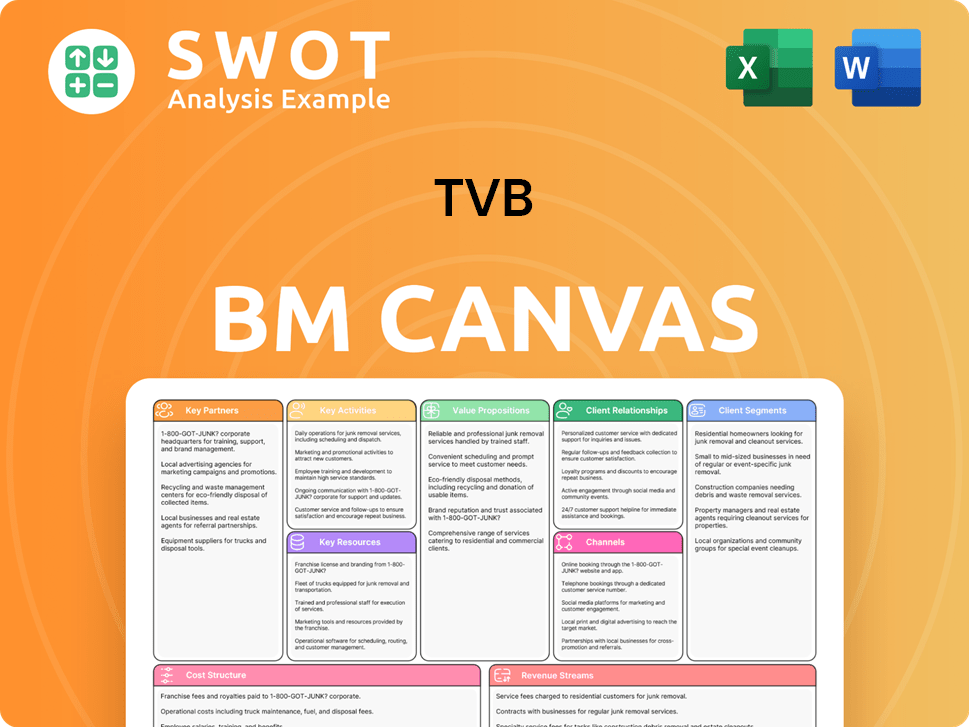
What Recent Changes Have Shaped TVB’s Ownership Landscape?
In the past few years, TVB ownership has seen significant shifts. A key development occurred in May 2025, when Thomas Hui To, the executive chairman, increased his stake in Young Lion Holdings, the ultimate parent company of Television Broadcasts Limited (TVB). This move made Hui the major shareholder, controlling 25.02% of TVB's voting shares through Young Lion.
In May 2024, the Communications Authority approved the allotment of 8.7 million new shares to GF Global Capital Limited, raising HK$29.4 million (US$14 million). Additionally, Shaw Brothers Limited, the largest shareholder, increased its stake to 25.02% by September 27, 2024, up from 21.66%. These actions aimed to fund new productions, particularly co-productions with mainland Chinese streaming platforms like Youku and Tencent Video, which saw a 69% revenue growth in 2024.
The media sector is experiencing increased institutional ownership and consolidation. While TVB focused on co-productions and e-commerce, it reported a 65% year-on-year reduction in net loss to HK$143 million in H1 2024. The company anticipates a positive net profit for 2025, driven by higher advertising income and reduced operating costs. There have been no public announcements about potential privatization or major leadership changes beyond the recent shifts in Young Lion Holdings' control, influencing who owns TVB.
Thomas Hui To, the executive chairman, is a major shareholder through Young Lion Holdings, controlling 25.02% of voting shares.
GF Global Capital Limited and Shaw Brothers Limited have recently invested in the company, increasing their shareholdings.
TVB reported a 65% reduction in net loss in H1 2024 and anticipates a positive net profit for the full year 2025.
The company is focusing on co-productions, particularly with mainland Chinese streaming platforms, and expanding its e-commerce ventures.
TVB Porter's Five Forces Analysis
- Covers All 5 Competitive Forces in Detail
- Structured for Consultants, Students, and Founders
- 100% Editable in Microsoft Word & Excel
- Instant Digital Download – Use Immediately
- Compatible with Mac & PC – Fully Unlocked
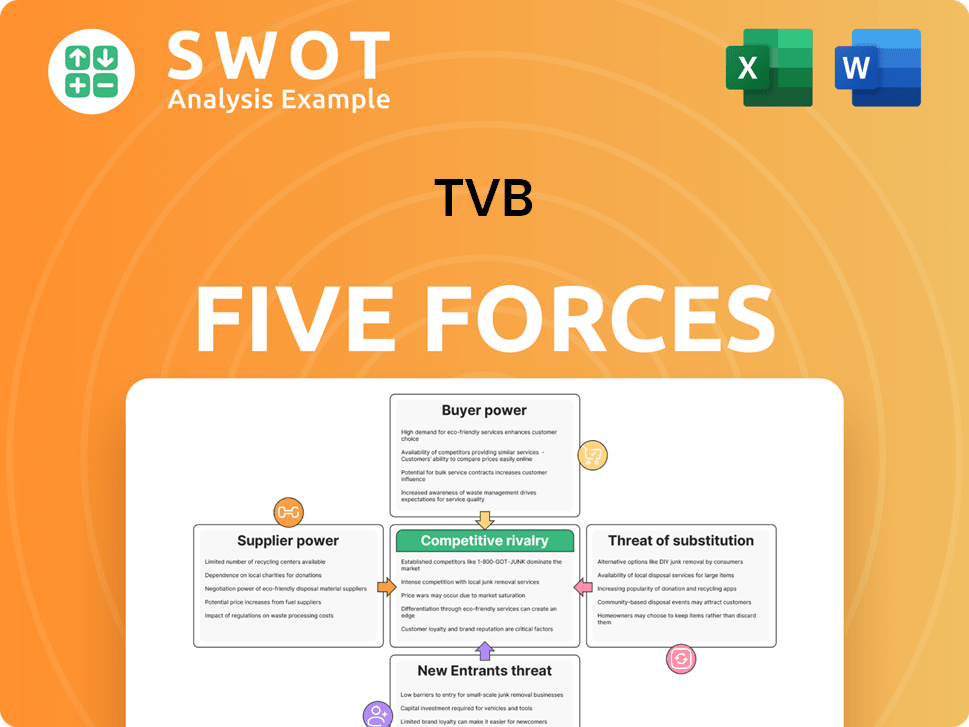
Related Blogs
- What are Mission Vision & Core Values of TVB Company?
- What is Competitive Landscape of TVB Company?
- What is Growth Strategy and Future Prospects of TVB Company?
- How Does TVB Company Work?
- What is Sales and Marketing Strategy of TVB Company?
- What is Brief History of TVB Company?
- What is Customer Demographics and Target Market of TVB Company?
Disclaimer
All information, articles, and product details provided on this website are for general informational and educational purposes only. We do not claim any ownership over, nor do we intend to infringe upon, any trademarks, copyrights, logos, brand names, or other intellectual property mentioned or depicted on this site. Such intellectual property remains the property of its respective owners, and any references here are made solely for identification or informational purposes, without implying any affiliation, endorsement, or partnership.
We make no representations or warranties, express or implied, regarding the accuracy, completeness, or suitability of any content or products presented. Nothing on this website should be construed as legal, tax, investment, financial, medical, or other professional advice. In addition, no part of this site—including articles or product references—constitutes a solicitation, recommendation, endorsement, advertisement, or offer to buy or sell any securities, franchises, or other financial instruments, particularly in jurisdictions where such activity would be unlawful.
All content is of a general nature and may not address the specific circumstances of any individual or entity. It is not a substitute for professional advice or services. Any actions you take based on the information provided here are strictly at your own risk. You accept full responsibility for any decisions or outcomes arising from your use of this website and agree to release us from any liability in connection with your use of, or reliance upon, the content or products found herein.